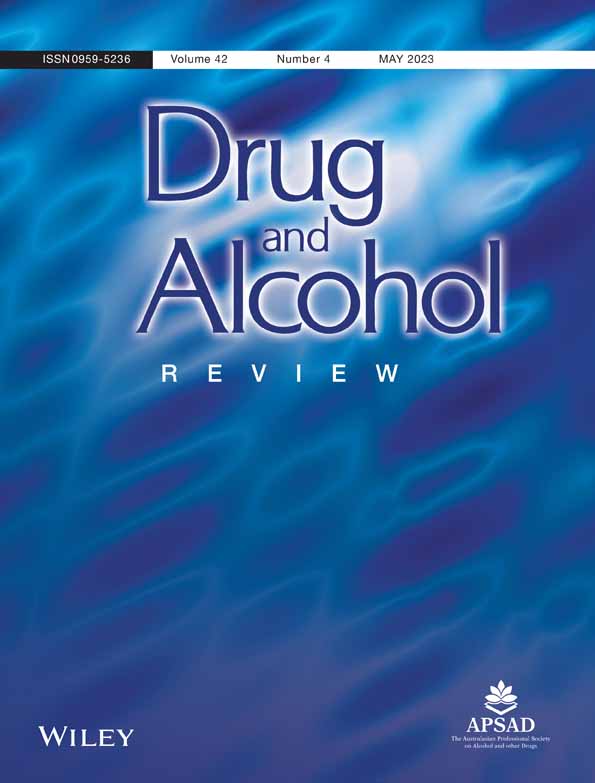Cannabis use and gastrointestinal tract illnesses: The National Health and Nutrition Examination Surveys, 2005–2018
Abstract
Introduction
The antiemetic properties of cannabis have motivated its use in the management of chemotherapy-induced nausea and vomiting. Conversely, case reports of intractable vomiting among heavy cannabis users have increasingly appeared in the literature. Studies on cannabis and gastrointestinal tract (GIT) health are scare. Here, we use data for the National Health and Nutrition Examination Surveys (NHANES, 2005–2018) to estimate the association between cannabis use and GIT illness.
Methods
The study sample included non-pregnant adult NHANES participants (20–59 years) without history of cancer or HIV (n = 18,753). Cannabis use was categorised into never, former (0 day in the past 30 days), infrequent (1–2 days), occasional (3–19 days) and frequent (20–30 days) use. Recent GIT illness was defined as experiencing GIT illness with vomiting or diarrhoea that started in the 30 days prior to NHANES. Logistic regression was used to regress GIT illness on cannabis use, adjusting for potential confounders.
Results
Compared to never use, frequent cannabis use was associated with higher odds of GIT illness (OR = 1.4; 95% confidence interval 1.04, 1.9). There were no associations between former, infrequent or occasional cannabis use and GIT illness.
Discussion and Conclusions
Frequent cannabis use is associated with GIT illnesses in a large cross-sectional study of US residents. It is possible that frequent cannabis use adversely affects GIT health, consistent with clinical case reports. Alternatively, patients with GIT illness might self-medicate with cannabis given its antiemetic properties. Prospective studies are needed to understand the effects of cannabis use on GIT health.
CONFLICT OF INTEREST
The authors declare no conflict of interest.




